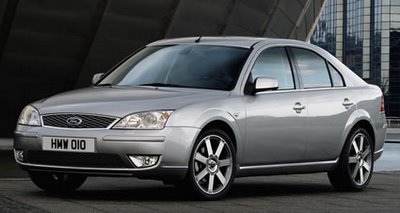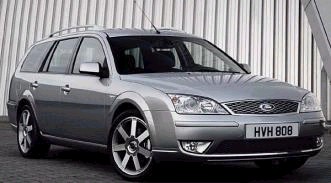 I think we can all agree on a couple of points. First our dependance on foreign oil is a weakness in both our economy and national security. Second that there is no one pure solution to that situation. Now while many will say Hybrids are a solution, they're not really and they have their own set of concerns. First Hybrids are really only suerior on an urban loop, they loose any advantage with long highway drives, where the Hybrid drive reverts to the conventional powertrain. Also with Hybrids, there are the issues of safety, reliability and recycling. I've heard concerns from Fire Fighters about what hazzrds may be present if a Hybrid is in a bad accident. Is there an electrocution risk? Are there potential hazzardous chemical reactions or release? With all of the electronics and new technologies, how reliable will Hybrids be over the long run? At the end of the vehicles' useful life, will there be issues associated with battery disposal?
I think we can all agree on a couple of points. First our dependance on foreign oil is a weakness in both our economy and national security. Second that there is no one pure solution to that situation. Now while many will say Hybrids are a solution, they're not really and they have their own set of concerns. First Hybrids are really only suerior on an urban loop, they loose any advantage with long highway drives, where the Hybrid drive reverts to the conventional powertrain. Also with Hybrids, there are the issues of safety, reliability and recycling. I've heard concerns from Fire Fighters about what hazzrds may be present if a Hybrid is in a bad accident. Is there an electrocution risk? Are there potential hazzardous chemical reactions or release? With all of the electronics and new technologies, how reliable will Hybrids be over the long run? At the end of the vehicles' useful life, will there be issues associated with battery disposal?All these questions will be answered over the next few years, as these systems vary, the answers may be unique to each brand or system used. But they're all valid questions. Now while I like Hybrids, I see them as only a part of the answer, actually a small part. I and others believe Diesels will be a larger part of the answer. Hydrogen, is often touted as the ultimate answer, but in reality it's not in the foreseeable future. Hydrogen production is problematic, because it takes more energy to produce the Hydrogen, than you get out of it. I'm not a scientist, but there are many articles on the subject online, do a Google search and you'll see what I'm talking about. Basically, Hydrogen would only make sense where Nuclear or Geo Thermal Energy plants were in use.
But Diesel technology could be a longer term solution with fewer down sides. But you're saying, Diesel like gas is petrolium based and dirty. You recall your uncle's Diesel Cutlas or Cadilac as a rattling unreliable nightmare. Or you had a neighbor who owned a Diesel Mercedes, that sounded like a Mack truck and was slow to get up to speed on the highway. Well that was 20 years ago or more. Diesel engines had fallen out of fashion in the US, but in Europe they evolved slowly, to the point that today, not to offer a Diesel engine in a vehicle line is foolish, since over 50% ( I had heard 65%) of all new cars in Europe are Diesels. Cleaner fuel and better emission equipment, along with improvements in turbocharging and direct fuel injection have lead to a new generation of Diesels, that have great power, and greater fuel economy.
And add to that mix, the prospect of Bio Diesel, and it's a no brainer. Fuel created by a renewable source, here on our shores, that burns cleaner and produces more power than conventional Diesel fuel. But you've heard recently that there is a problem with Bio Diesel, something about microbes and algae that can clog the fuel filters. Well, here's a little known fact, the same is true of petroleum Diesel. I work with #2 Fuel Oil, which is another name for Diesel, and we store large amounts of it in tanks for use in our boilers. We need to add a few gallons of biocide and stabilizer to our tanks every few years to prevent the growth. Sounds like a pain right? Not really, when you consider that to treat 20,000 gallons of #2 oil, I only need to add about 10 gallons of stabilizer each year. Think of it as adding dry gas or fuel injection cleaner to your car once a year. And if the marketers of Bio Diesel know what's good for them, they will have added it before it ever comes to your tank.
 But who wants to be driving a boring Diesel? Well, they're not so boring anymore. Take a look at this attractive station wagon, it's a Ford of Europe Mondeo. It's available with a 2.0L TDCi engine, that makes about 150 hp and 280 lb ft of torque. Now the 150 horses doesn't sound impressive, but remember it's the torque that really gets you going. And that 280 is damn close to the Mustang GT. So gobs of power and what kind of fuel economy? Try 30-40 on the highway. Want better economy, go for the smaller 1.6L Duratorq, in a Fiesta or Focus can get between 40-50 mpg highway. Want more power? How about the new 2.7L V-6 Ford just built for Jaguar and Land Rover. Why coudln't that engine be in a US Ford?
But who wants to be driving a boring Diesel? Well, they're not so boring anymore. Take a look at this attractive station wagon, it's a Ford of Europe Mondeo. It's available with a 2.0L TDCi engine, that makes about 150 hp and 280 lb ft of torque. Now the 150 horses doesn't sound impressive, but remember it's the torque that really gets you going. And that 280 is damn close to the Mustang GT. So gobs of power and what kind of fuel economy? Try 30-40 on the highway. Want better economy, go for the smaller 1.6L Duratorq, in a Fiesta or Focus can get between 40-50 mpg highway. Want more power? How about the new 2.7L V-6 Ford just built for Jaguar and Land Rover. Why coudln't that engine be in a US Ford?
Diesels may not be the total answer, but they are better than doing nothing. And Ford has them all they need to do is federalize them. Click the link to see what they've been doing to meet European standards. There is no reason that we couldn't have these powerplants here in the US in the next few years, I'm not saying the next decade either, I mean by 2008. If Mercedes is going to bring the BlueTec Diesels and have them 50 state compliant, why can't Ford? Low Suphur Diesel is here, and Bio Diesel is on the way. If Ford truely wants to drive inovation, start work on federalizing these powerplants now!
I fully aplaud Bill Ford's commitment to Hybrids and alternative fuel technologies, and hope that part of his thinking is Diesels. Ford has the weapons in their arsenal, it's time to use them. Don't worry about GM and Chrysler, don't concern yourself with the Japanese disdain for Diesel, do what you know we need to, bring those powerplants here, soon.




No comments:
Post a Comment